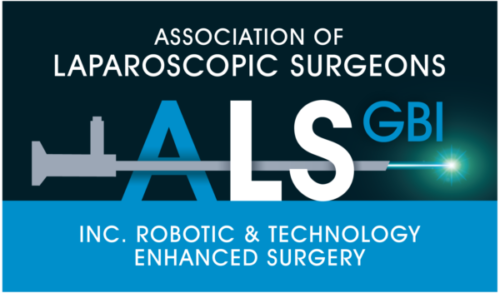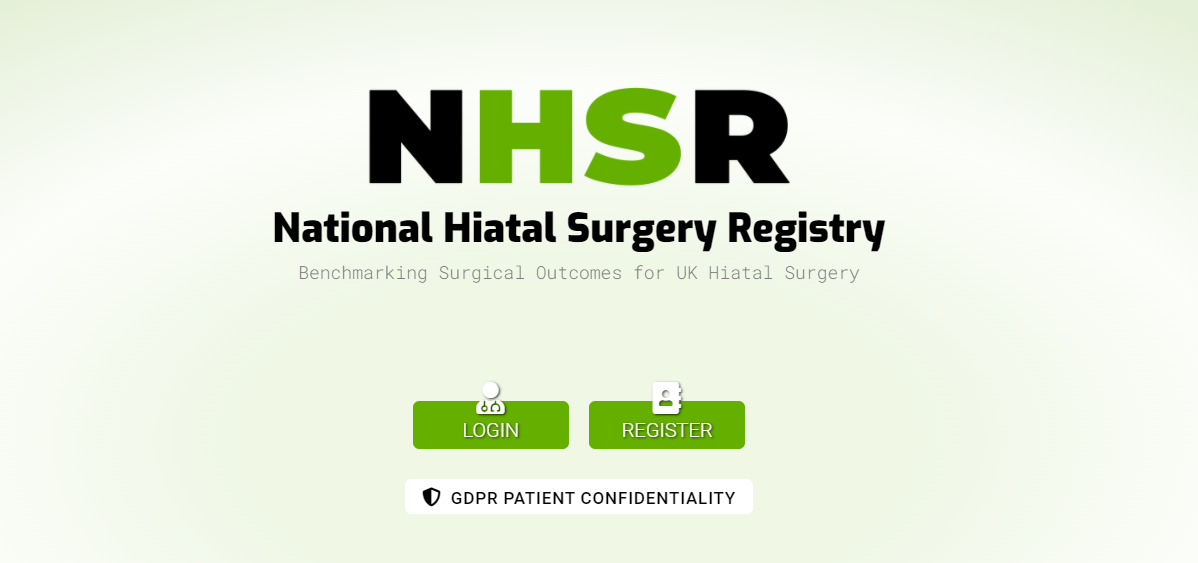The purpose of the National Hiatal Surgical Registry (NHSR) is to provide surgeons an effective tool to be reflective in their surgical practice in the treatment of hiatal surgical disease and benchmark outcomes for hiatal surgical procedures across the UK.
It is a database that will allow surgeons on a voluntary basis to enter meaningful and useful information about the hiatal surgery they perform for the purpose of auditing their outcomes and referencing themselves against peer outcomes.
The registry is free to use for all GMC registered surgeons in respect to hiatal surgery conducted in the UK for NHS and independent sector practice, who are members of BBUGSS or AUGIS.
Hiatal surgery encompasses surgical procedures for the treatment of benign upper gastrointestinal conditions related to the hiatus of the diaphragm. These pathological conditions include gastro-oesophageal reflux disease, symptomatic hiatus hernias and achalasia. The surgical procedures described under hiatal surgery include- anti-reflux surgery (both fundoplication and LINX), hiatus hernia repair and cardiomyotomy, the registry does not at present include endoluminal procedures.
The registry will record details about patient selection, pre-operative investigations, intra-operative techniques, volumes of practice and most importantly outcomes. The registry has patient reporting outcome measures (PROMs) integral within it. The registry will automatically contact patients (with their consent-see GDPR policy) with regard to their symptoms at 6 months, 1 year, 2 years, 3 years, 4 years and 5 years after their surgery. For anti-reflux procedures registry the will use pre-operative and post-operative GORD-QoL (see downloads page) scores and need for continued anti-acid medication use as outcome measures. For cardiomyotomy surgery, comparison of pre-operative and post-operative Eckhardt scores (see downloads page) are used and for hiatus hernia repair pre-operative and post-operative Hiatus Hernia-QoL score (see downloads page).
Surgeons will be able to down load a personal report based on the information they have entered for purpose of their appraisal. A national Annual Report will also be delivered each year at the AUGIS Annual Scientific Meeting. This report will not be at the surgeon level, but at the unit level. Volumes of activity, complication rates and follow up outcomes will be reported. Individual surgeon users will only be able to see their own individual outcomes and these will be statistically referenced against the average of other surgeons anonymised outcomes for the same conditions. As an NHSR user you will not be able to see other surgeons individual outcomes.
The information collected about both surgeons and patients is completely confidential and will never be shared with any other organisation (see GDPR policy). The registry is governed by a committee of surgeons and run and maintained by a private company bound by GDPR confidentiality law.
The registry aims to more specifically classify hiatal surgery to report more meaningful comparison of outcomes. The registry uses BBUGSS surgical hiatal classification to record hiatal procedure rather than relying on the very limited surgical procedural codes used by Hospital Episode Statistics (HES).
After user registration and validation of your account you will be able to start adding data. You will be required to obtain written consent from your patients for both storing their details on the registry and also the patient being contacted post operatively by the registry to collect patient reported outcomes. This consent document can be down loaded from the registry to be printed out and filed in the patient notes. Your patient will receive contact from the registry to confirm this consent.
For a short video demonstration of the NHSR function follow link- https://www.bbugss.com/
The minimum information about patients is recorded (NHS number as well as their e mail address and contact telephone number). Responsibility of the patient data security for patients entered in the registry rests with the registry.
Please click HERE to visit the NHSR website.







